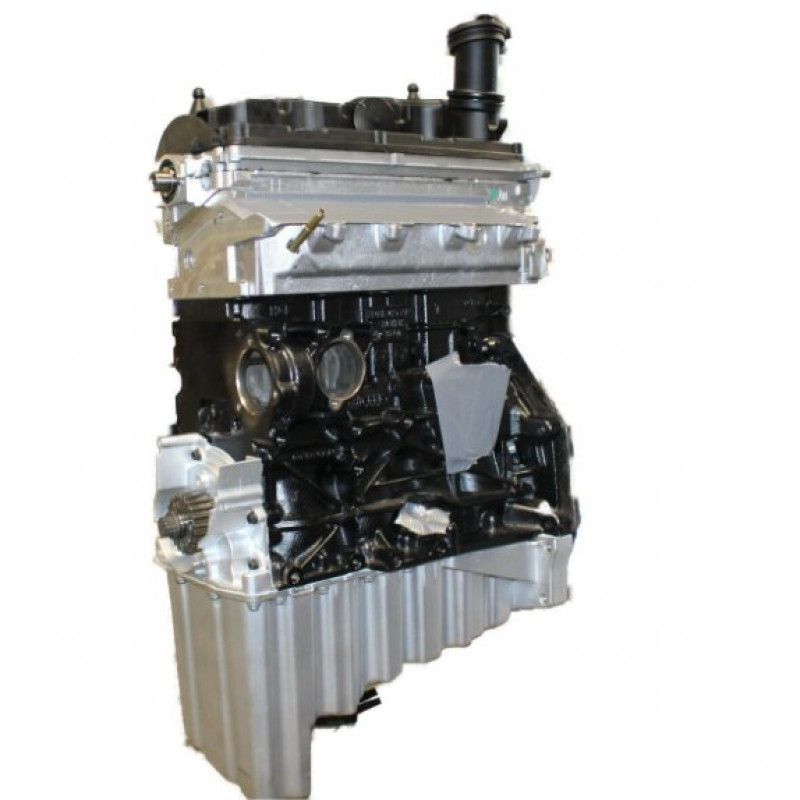Crucial Considerations and Tips for Selecting the Right Engine for Your Requirements
Picking the best engine is a diverse choice that requires careful factor to consider of various elements to make sure optimum performance for your particular demands - amarok engine for sale. Understanding your intended application is vital, as the needs of commercial, industrial, or leisure usage will significantly influence your option. In addition, evaluating crucial specifications such as torque, gas, and horse power effectiveness, alongside upkeep needs and spending plan restrictions, will guide you towards a sustainable financial investment. The complexities of engine option extend past these fundamentals, motivating a closer evaluation of essential aspects that can eventually affect your contentment and success.
Determine Your Objective
Establishing your purpose is a crucial primary step in picking the right engine for your needs. Understanding the certain application you desire will lead your decision-making procedure and guarantee that you pick an engine that aligns with your functional requirements. Whether you need an engine for an industrial car, industrial machinery, or a recreational project, each circumstance needs different efficiency attributes and capacities.
Think about the setting in which the engine will certainly operate. Will it be subjected to hefty tons, extreme temperatures, or prolonged use? Assessing these factors will assist you determine the needed power result, fuel effectiveness, and resilience required to fulfill your objectives.
Additionally, think of the lasting effects of your choice. Budget constraints, maintenance requirements, and accessibility of components are crucial considerations that will impact your overall contentment and operational efficiency.
Eventually, verbalizing your function will certainly improve the choice process and empower you to make an informed decision. By plainly specifying your purposes, you can review possible engines more effectively and choose one that not just fulfills your existing demands yet additionally sustains your future objectives.
Evaluate Engine Specs
Once you have clearly articulated your purpose, the following action is to examine engine requirements. This process involves a comprehensive assessment of numerous technological information that can dramatically affect performance and viability for your intended usage.
Begin by assessing the engine's horsepower and torque ratings. Horsepower is vital for identifying the engine's capacity to perform work, while torque is necessary for understanding exactly how well it can deal with heavy loads or acceleration. Additionally, consider the engine variation, as it usually correlates with power output and performance.
Following, take a look at the engine typeâEUR" whether it is a gas, diesel, or alternative fuel engineâEUR" as each type has distinct qualities and applications. Pay interest to the engine's arrangement (e.g., inline, V-type), as this can impact dimension, weight, and general performance.
An additional crucial element is the engine's air conditioning system, which can influence reliability and upkeep needs. Last but not least, evaluate the manufacturer's track record and warranty offerings, as these can give insights into long-lasting performance and assistance. Thoroughly evaluating these specs will help ensure that you select an engine that aligns with your certain demands and functional goals.
Take Into Consideration Gas Performance
Gas effectiveness is a vital aspect to think redirected here about when selecting an engine, as it directly affects operational prices and ecological sustainability. An engine's gas effectiveness is usually determined in miles per gallon (MPG) for cars or in certain gas usage (SFC) for airplane and aquatic engines. Higher fuel effectiveness not just lowers the amount of gas eaten but also reduces greenhouse gas discharges, making it an accountable option for eco-conscious customers.
When assessing engine choices, it is vital to evaluate the driving problems and intended use. Engines enhanced for highway driving might display better gas effectiveness compared to those made for stop-and-go traffic. In addition, think about the engine's technology, such as turbocharging or crossbreed systems, which can dramatically enhance gas effectiveness.

Assess Maintenance Requirements

Some engines might require more frequent oil changes, filter substitutes, or specialized maintenance, which can affect your operational downtime. Engines with widespread appeal generally have better parts accessibility, minimizing lead times during repairs.
Another vital facet is the technological know-how needed for upkeep. Some engines might demand customized training for professionals, which could restrict your options for solution companies. In addition, examine whether the engine's style permits easy accessibility to elements often requiring upkeep, as this can substantially affect labor prices.
Spending Plan Your Investment
Comprehending maintenance demands is just one facet of picking the ideal engine; economic considerations play a similarly essential function (amarok engine for sale). Establishing a clear budget is essential, as it affects not only the initial purchase price however likewise lasting operational expenses
When budgeting, take into consideration both the ahead of time costs and recurring expenditures such as gas efficiency, maintenance, and possible repair work. An apparently cost effective engine might sustain higher expenses with time due to poor gas economic climate right here or frequent maintenance requirements. Furthermore, evaluate the accessibility and expense of extra parts, as well as the guarantees used by manufacturers, which can give economic protection versus unexpected costs.
It is also smart to consider potential financing alternatives or renting setups, which can ease prompt monetary concerns. Balance your wish for innovative functions with your budget restrictions, ensuring that you purchase an engine that meets your performance requires without endangering monetary stability.
Inevitably, a well-shaped budget plan will equip you to make informed choices, straightening your engine choice with both your economic capabilities visit the website and functional demands, resulting in an extra sustainable financial investment in the long run.

Final Thought
In conclusion, picking the suitable engine demands a detailed understanding of particular needs and applications. Cautious evaluation of engine specs, gas efficiency, and upkeep demands is vital for informed decision-making. Additionally, developing a comprehensive spending plan makes certain that both ongoing and first prices are manageable. By adhering to these people, factors to consider and organizations can make a sustainable financial investment that aligns with their operational objectives and performance expectations, eventually boosting overall efficiency and performance.
Gas performance is a critical element to consider when selecting an engine, as it directly affects functional expenses and environmental sustainability. An engine's gas performance is normally measured in miles per gallon (MPG) for lorries or in specific gas usage (SFC) for aircraft and marine engines. Diesel engines usually offer better fuel effectiveness than fuel engines. Eventually, choosing an engine with a strong focus on gas performance can lead to considerable lasting savings and contribute favorably to environmental efforts. Careful examination of engine requirements, gas efficiency, and upkeep requirements is vital for informed decision-making.